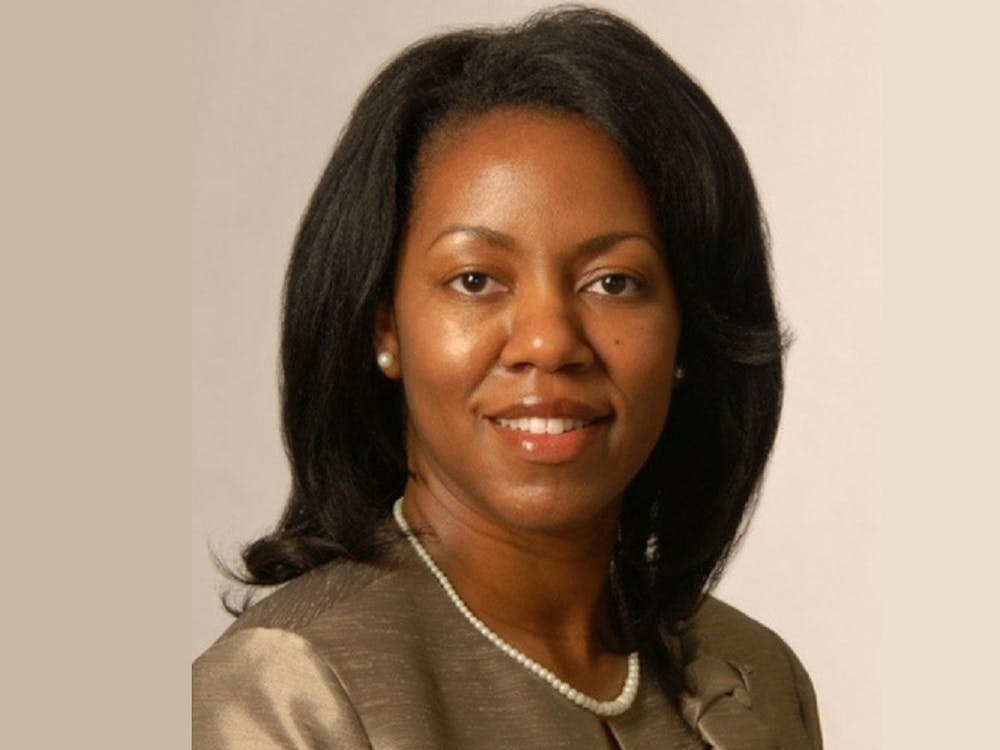Stelfanie Williams, Trinity ‘98, returned to Duke to become vice president for Durham and community affairs in August 2018. She talked to The Chronicle about her past, present and future goals for the role. This interview has been edited for length and clarity.
The Chronicle: Tell me about how you got into this role and what the transition has been like into Duke leadership.
Stelfanie Williams: I have been at Duke in this role for about 18 months now, and I transitioned to Duke from a role as president of a two-year community college in North Carolina. I had spent a couple of decades working in community colleges across the state, in both academic and administrative roles, and really enjoyed that work.
I saw this opportunity at Duke as a chance to translate that two-year college-level experience, which had been primarily in rural areas of North Carolina, to a research university environment in an urban setting.
I think what made it even more interesting and rewarding is that Duke is my alma mater. So it was an opportunity to return to Duke and to Durham. I left Duke wanting to serve the community as a public policy graduate, and this role allowed me to come back to serve the community where I had been prepared for public service.
TC: As you've come into this role as the vice president for Durham and community affairs, what have your priorities been?
SW: I have tried to spend the majority of the time really getting to know the environment, getting a fuller understanding of the University and the health system—Duke is a very complex organization—as well as getting to know our team in Durham and community affairs, and we've made some additions to our team.
I've also spent time, along with our team, building a structure that we anticipate will strengthen the coordination, communication and I'd say the comprehensiveness of how we approach community affairs. And we've tried to do that with a focus on three things: First, that our work is values-based. Second, that it is mission-guided, so thinking through the roles Duke has in the community as a university, as a health system, as an employer, as a corporate citizen and with Durham as its home. And finally, making sure that our work is community-informed.
TC: What do you see in the current state of Durham relationships? What do you hope for in the future?
SW: I continue to say that the success of Duke and Durham is intertwined, and I believe that. I'm grateful for the good work that has carried us thus far, and I hope, for the future, to build on these strong relationships, and to seek out opportunities to advance quality of life, for all of us, for the whole community. We are keeping the whole community in mind as we develop structures that can sustain engagement for the years to come.
TC: What are some of the projects and room for growth looking forward?
SW: One of the ways we are informing our work is by hosting community conversations that have included President Vincent Price. We invite members of the community to discuss particular topics. This pandemic has put a pause on community conversations as well as other gatherings and on other elements of business.
Prior to COVID-19, we were in the midst of hosting community conversations and really talking about issues of quality of life like education; health and nutrition; college and career readiness; supportive services in the community, which are often connected to faith-based organizations and nonprofits; and neighborhood and community development issues like housing.
As it relates to COVID, I have been pleased to see the level of collaboration—even though so much of it has to be remote—all across the community. I think Duke, as it has over the past decades, saw the need to make a commitment to supporting the community.
I hope you saw Price's announcement about the three assistance funds that Duke established. One really focuses on supporting students' needs. The second is a fund within the healthcare system that focuses on research, innovation, treatment and patient care. And then thirdly, support for the community is being provided through the Duke-Durham Fund—Duke committed $5 million to the broader community.
Get The Chronicle straight to your inbox
Sign up for our weekly newsletter. Cancel at any time.

